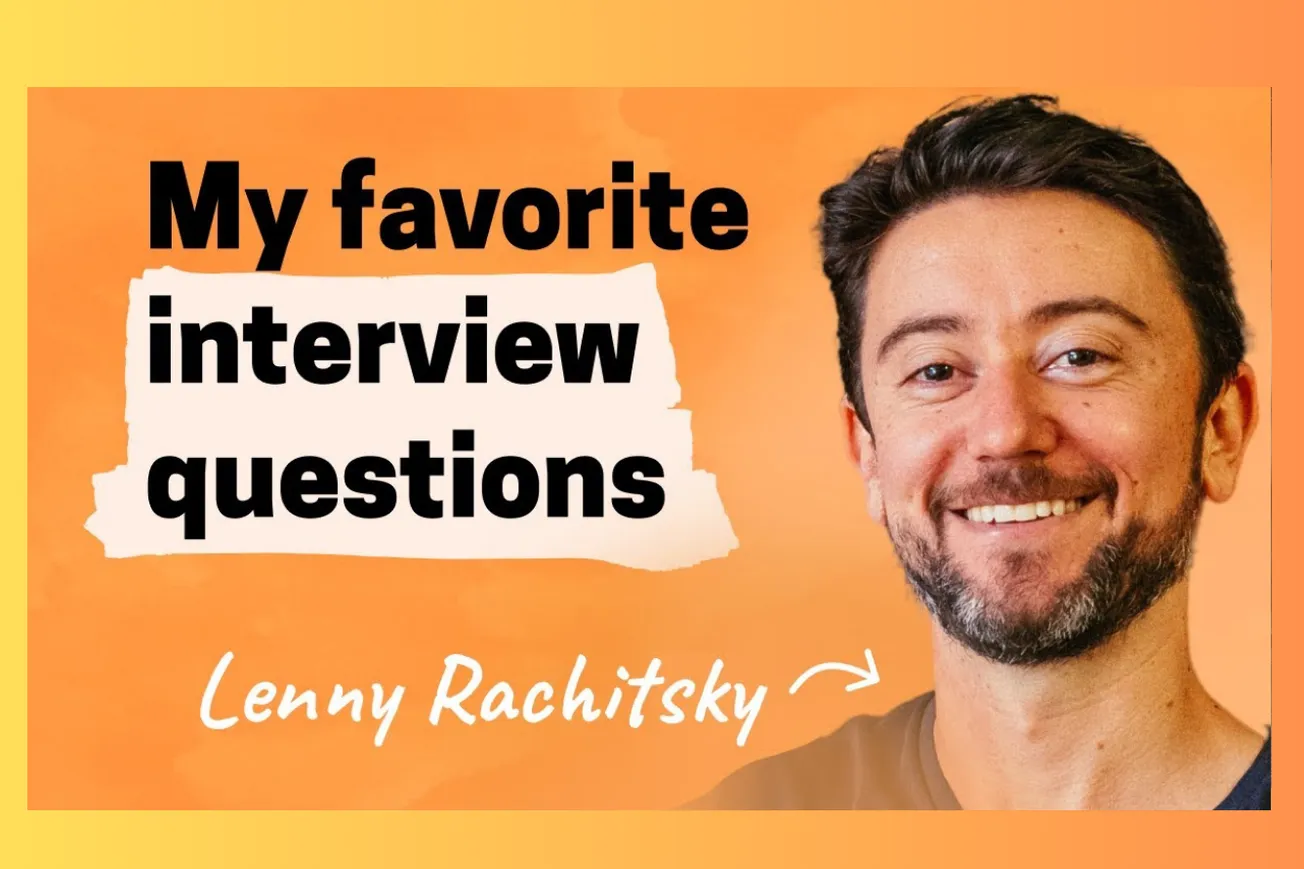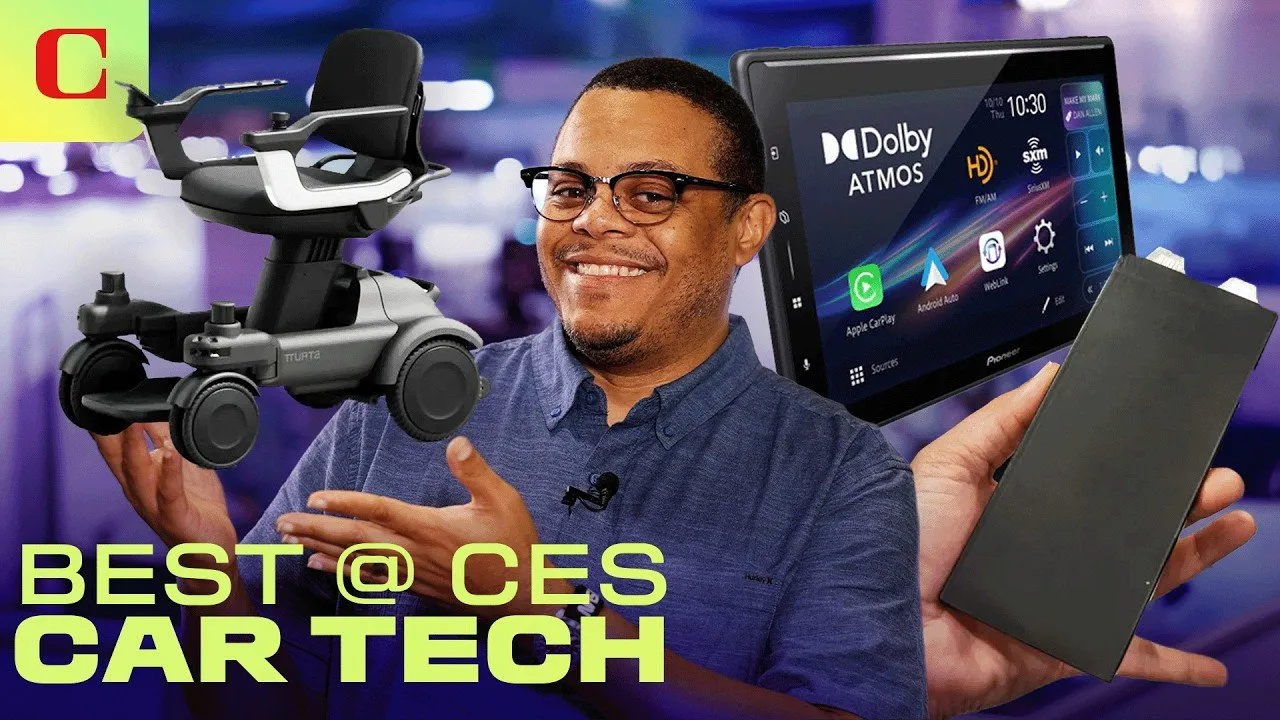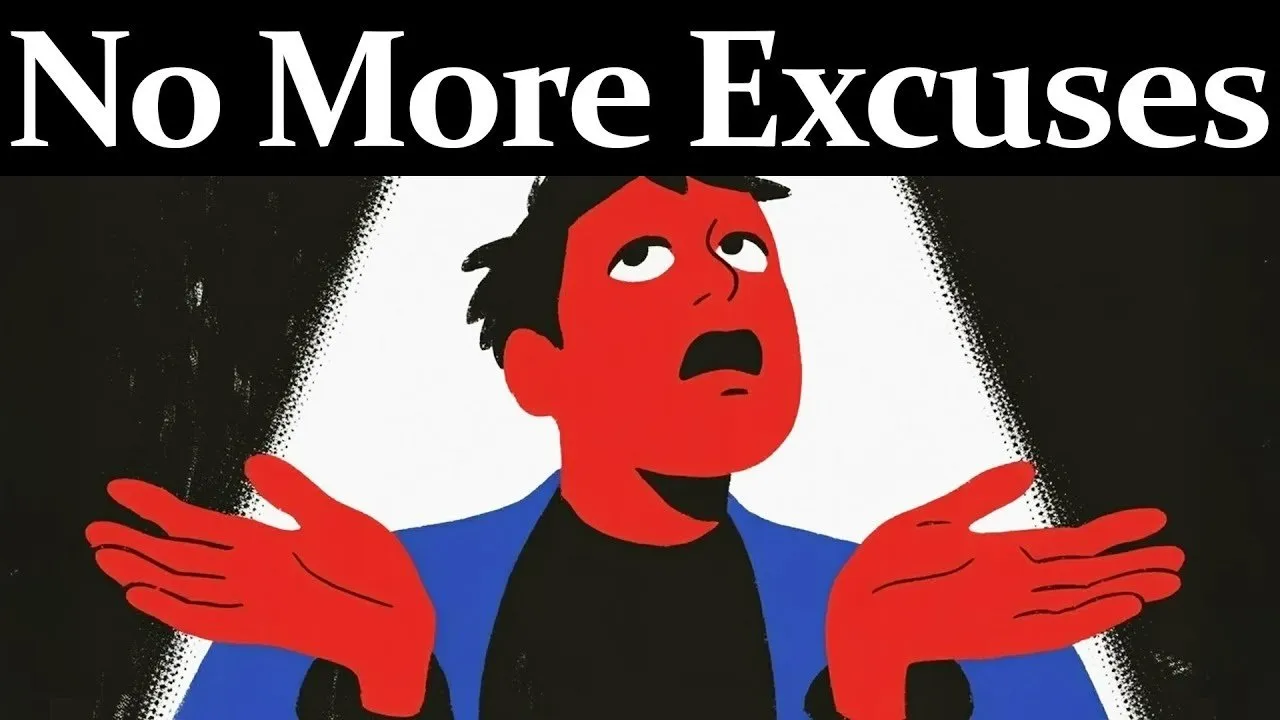Table of Contents
Transform your hiring process with these battle-tested questions from top product executives at Stripe, Airbnb, Figma, and more.
Key Takeaways
- Self-awareness questions reveal more than technical skills about a candidate's potential
- Behavioral questions about handling ambiguity predict real-world PM performance better than hypotheticals
- The best interview questions break through rehearsed answers to uncover authentic thinking
- Questions about failure and controversy show how candidates handle difficult situations
- Reference calls with specific performance review questions yield the most honest feedback
- Product thinking can be tested through creative scenarios like teleportation devices
- Asking about unfair secrets reveals genuine learning and growth mindset
- Questions about pride and accomplishment illuminate values and motivations
- Sibling perspective questions cut through self-presentation to reveal true character
Timeline Overview
- 00:00–03:21 — Episode Introduction and Sponsor Messages: Setting up the special compilation format from 100+ podcast guests, explaining the lightning round segment origins, and featuring Sendbird and Eppo product spotlights
- 03:21–03:57 — Success Attribution Without Luck: Eeke De Miliano's self-awareness test that forces candidates to genuinely reflect on their achievements and growth patterns beyond humble deflection
- 03:57–04:31 — Defining and Overcoming Hardship: Geoff Charles explores how candidates understand difficulty, demonstrate resilience, show agency in problem-solving, and collaborate effectively under pressure
- 04:31–08:44 — The Teleportation Device Framework: Shishir Mehrotra's legendary product thinking test that reveals how candidates identify leverage questions and build decision frameworks under severe constraints
- 08:44–09:56 — Controversial Decisions and Storytelling: Yuhki Yamashita assesses conflict navigation, perspective-taking, communication skills, and the ability to make complex problems compelling to others
- 09:56–11:28 — What Work Makes You Proud: Katie Dill, Karri Saarinen, and Camille Hearst reveal candidate values, taste, judgment, and intrinsic motivations through their proudest professional accomplishments
- 11:28–12:43 — Navigating Ambiguity with Structure: Jiaona Zhang tests core PM skills of creating clarity from chaos, seeking appropriate input, and building incremental learning systems
- 12:43–13:10 — Unfair Secrets for Product Velocity: Noah Weiss uncovers unique insights and learning approaches that go beyond conventional wisdom and standard frameworks
- 13:10–14:41 — Three-Year Growth and Curiosity Signals: Ben Williams distinguishes between title-focused and development-focused candidates while testing genuine intellectual curiosity throughout conversations
- 14:41–15:29 — Sibling Perspective on Character: Meltem Kuran Berkowitz cuts through professional personas to reveal authentic self-awareness, humility, and genuine personality traits
- 15:29–16:13 — Failure Response and Mindset: Paige Costello examines how candidates analyze setbacks, take responsibility, extract learnings, and maintain productive attitudes during difficulties
- 16:13–17:51 — Breaking Interview Preparation Patterns: Nikhyl Singhal forces authentic thinking by challenging conventional wisdom, preventing rehearsed responses, and testing genuine opinions
- 17:51–18:20 — Introspection Through Unexpected Outcomes: Ayo Omojola tests whether candidates can distinguish causation from correlation and incorporate learning into future decision-making
- 18:20–19:17 — Self-Limitations and Luck Recognition: Scott Belsky probes emotional intelligence through honest discussion of constraints and acknowledgment of privilege and fortune
- 19:17–19:46 — Defining Impact and Intrinsic Motivation: Lauryn Isford separates metrics-driven candidates from those with genuine business impact orientation beyond personal achievement
- 19:46–20:18 — Reference Call Performance Review Strategy: Paul Adams transforms polite recommendations into honest assessments by asking about specific feedback candidates will receive
Self-Awareness and Reflection Questions
- Eeke De Miliano's attribution question cuts through false humility by asking candidates to explain their success without mentioning luck. This forces genuine self-reflection about skills, decisions, and growth patterns that contributed to their achievements.
- Scott Belsky probes introspection by asking about personal limitations and luck acknowledgment. Candidates who can honestly discuss their constraints and admit privilege demonstrate the emotional intelligence needed for leadership roles.
- Meltem Kuran Berkowitz uses sibling perspectives to bypass self-presentation filters. Family members provide unvarnished views that reveal authentic personality traits, humility, and self-awareness that professional references might sugarcoat.
- Ayo Omojola tests reflection through unexpected outcomes, asking about decisions that worked for different reasons than expected. This reveals whether candidates can analyze causation versus correlation and incorporate learning into future decision-making.
- Ben Williams' three-year growth question separates title-focused candidates from those committed to personal development. Strong answers demonstrate humility about current limitations and specific areas for improvement rather than just career advancement goals.
Problem-Solving and Product Thinking Assessment
- Shishir Mehrotra's teleportation device scenario has become legendary for testing product thinking under constraints. When limited to just two questions, sharp candidates quickly identify the core variables that drive all other decisions - safety for humans and cost structure (capex versus opex).
- The teleportation question works because it removes domain expertise advantages and tests pure problem-solving methodology. Candidates must demonstrate they can identify leverage points that unlock entire decision trees rather than getting lost in implementation details.
- Noah Weiss seeks unfair secrets about improving product velocity and energy. This question reveals whether candidates have developed unique insights through experience rather than just following conventional wisdom from blog posts and frameworks.
- Yuhki Yamashita's controversial product decision question tests multiple dimensions simultaneously. Candidates must demonstrate they can present complex conflicts fairly, understand multiple stakeholder perspectives, and communicate compellingly about difficult topics.
Strong answers to product thinking questions show systematic approaches to breaking down complex problems, identifying key constraints, and building frameworks that can be applied across different scenarios.
Behavioral and Situational Judgment
- Geoff Charles' hardest challenge question reveals resilience, agency, and collaboration skills. He specifically looks for how candidates define difficulty, their role in overcoming obstacles, and their ability to work with others during stressful situations.
- Jiaona Zhang focuses on ambiguity navigation because product management inherently involves unclear situations. Strong candidates demonstrate they can create structure and forward momentum while remaining open to input and course correction.
- Paige Costello's failure question examines mindset during setbacks. The best responses show candidates can analyze what went wrong objectively, take appropriate responsibility, and extract learnings without excessive blame or defensiveness.
- Nikhyl Singhal breaks through interview preparation by asking about conventional wisdom candidates disagree with. This forces authentic thinking since there's no way to predict the "right" answer - candidates must reveal genuine opinions and reasoning.
Values and Motivation Discovery
- Katie Dill, Karri Saarinen, and Camille Hearst all use pride questions to understand what drives candidates. The specific work someone feels proudest of reveals their values, definition of success, and intrinsic motivations beyond external rewards.
- Lauryn Isford's impact question goes deeper than metrics to understand how candidates define meaningful outcomes. Growth practitioners need intrinsic motivation about business impact rather than just hitting numbers for their own sake.
- Ben Williams flips traditional interviews by asking candidates about diversity, equity, inclusion, and belonging initiatives. This allows candidates to assess cultural fit and values alignment with potential managers and teammates.
The pride question particularly effective because it allows candidates to showcase their best work while revealing what they consider important. Strong answers demonstrate both technical competence and alignment with company values through the examples chosen and reasoning provided.
Reference and Background Verification
- Paul Adams transforms reference calls with his performance review question that cuts through polite recommendations. By asking what feedback the candidate will receive in their first review, references must provide specific, actionable insights about growth areas.
- This approach works because it's impossible to dodge - every employee has areas for improvement, and good references want to set realistic expectations. The question yields honest assessments about working style, communication patterns, and development needs.
Conclusion
These seventeen interview questions represent a fundamental shift from traditional hiring approaches that prioritize technical knowledge toward deeper assessment of thinking patterns, self-awareness, and cultural fit. The most effective questions break through rehearsed responses by testing authentic judgment, introspection, and problem-solving methodology rather than domain expertise. Whether evaluating product managers, designers, or growth practitioners, these battle-tested approaches from industry leaders consistently reveal the cognitive and emotional qualities that predict long-term success in ambiguous, high-stakes environments.
Practical Implications
- Replace generic behavioral questions with specific scenarios that test core job requirements like ambiguity navigation and stakeholder conflict resolution
- Use constraint-based questions (like the teleportation device) to evaluate pure problem-solving ability independent of domain knowledge
- Ask about pride, failure, and controversial decisions to understand values, resilience, and communication skills under pressure
- Incorporate self-awareness tests through sibling perspectives, limitation acknowledgment, and success attribution to assess emotional intelligence
- Break interview preparation patterns by asking about conventional wisdom disagreements and unfair secrets that reveal authentic thinking
- Focus reference calls on specific performance feedback rather than general recommendations to get honest assessments of growth areas
- Test curiosity and learning orientation through questions about unexpected outcomes and three-year personal development goals
- Use the same question across multiple interviewers (like the pride question) to compare candidate priorities and storytelling consistency
These interview questions represent hundreds of hours of hiring experience distilled into practical tools that reveal authentic capabilities, thinking patterns, and cultural fit better than traditional approaches.





